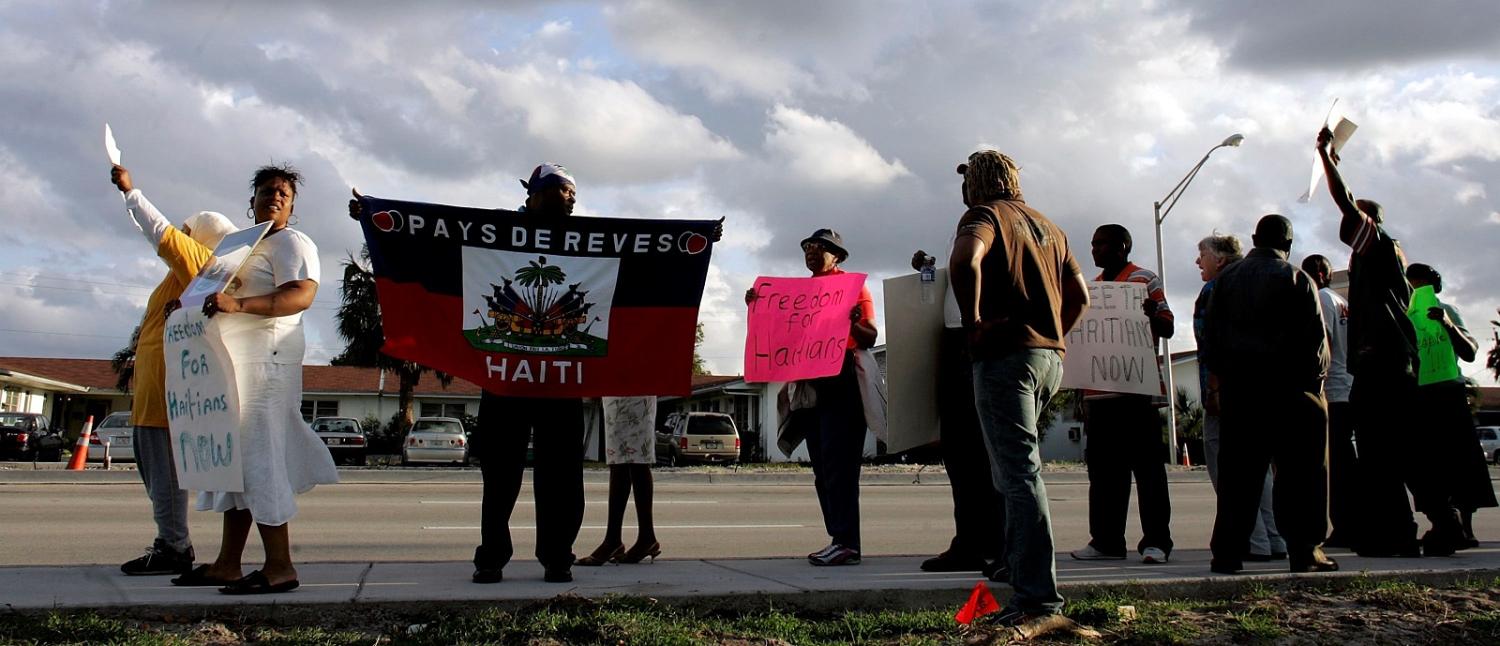- The Department of Immigration and Border Protection (DIBP) has released a policy consultation paper on simplifying Australian visa arrangements.
- Almost 500 submissions were made to the Senate inquiry into the Australian Citizenship Amendment Bill, drafted to strengthen the Australian citizenship requirements and other key provisions. Notable submissions included those from the UNSW's Kaldor Centre and the Gilbert and Tobin Centre of Public Law, the Australian Multicultural Council, UNHCR, Australian Human Rights Commission and the DIBP.
- President Trump has announced his support of the RAISE Act, a bill that seeks to establish a high-skilled migration model similar to that in place in Australia and New Zealand.
- Migration Policy Institute’s Jennifer Schulz and Jeanne Batalova analyse the geographic distribution and socioeconomic characteristics of the Haitian immigrant population in the US.
- A recent ILO study has found that migrant workers in South-East Asia lack access to fair and responsive remedies for labour rights abuses.
- Yusof Ishak Institute’s Andrew M Carruthers has published a summary of clandestine migration flows along the Indonesia-Malaysia corridor.
- The Peace Research Institute Oslo’s Jorgen Carling considers the ‘nexification’ of migration studies.
- Five of eight aid organisations that undertake search and rescue operations in the Mediterranean have refused to sign up to the Italian government’s code of conduct.
- Tanzanian president John Magufuli has suspended the nation’s registration and naturalisation program for Burundian refugees.
- Writing for Al Jazeera, Julie Schiltz and Kristof Titeca offer a critique of Ugandan refugee policy in the context of recent media coverage.
Migration and border policy links: RAISE Act, Haitian immigrants in the US, ‘nexification’, and more
This weeks links include a consultation paper on simplifying Australian visa arrangements, and distribution and characteristics of Haitian immigrants in US.

Activists protest US immigration policy for Haitians (Photo: Joe Raedle/Getty Images)
Published 3 Aug 2017
Follow @rebuckland
